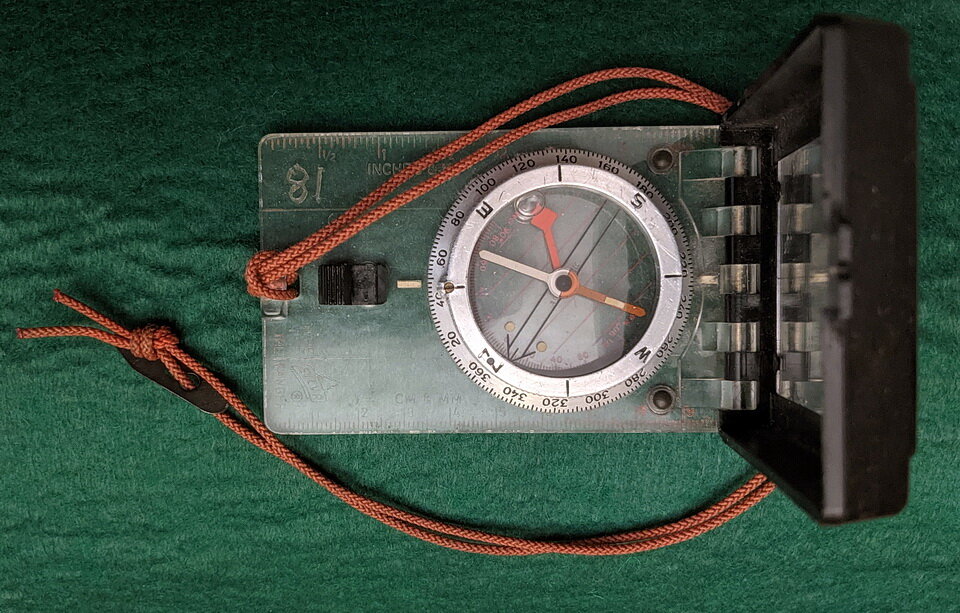Far North Friday: A Compass Never Lies
There are four tools that are a fundamental pieces of a geologist’s navigational repertoire: aerial photographs of the land; a compass; the Sun; and a GPS.
This is a Silva compass. Not the kind of compass I used in the bush as a geologist, but it is an excellent backup and will guide you to your destination - assuming your mind does not discount its directions. Photo by Andy Fyon, May 27, 2021
Early in my career, GPS did not exist - at least, not in an affordable, portable form. Aerial photos taken from a aircraft were very useful to identify where you stood if there were recognizable geographic features, if you were not working in a logged area, and if you were not working in an area of a past forest fire. It was not that you couldn’t use aerial photos in those conditions. You just had to adapt how you used them.
The compass was the main directional tool. One of the first lessons a geology student learned was - and I use an old saying - trust, but verify. The compass works with the Earth’s magnetic field to cause the compass needle to point to the magnetic north. But, you quickly learn there are rock formations that are magnetic and that cause the compass to “go nuts”, becoming completely useless. While that can be interesting, you also learn to watch the way the compass needle behaves to verify nothing untoward is affecting it.
There is one factor that is harder to guard against - the human mind. I recall looking at my compass and saying “sorry, you are wrong. The correct direction is over there”. I went through the tests. There was no magnetic body immediately beneath my feet. But still, the compass clearly pointed in the wrong direction. I walked around. Looked at the compass again. It still pointed in the wrong direction. I told the compass to smarten up. Walked around a bit more. No change. The compass still pointed in the wrong direction. So, I made the executive decision to disregard the compass and walk in the opposite direction. “Look, an exposed rock that looks just like the one I visited 30 minutes ago. Unusual. Two identical rock exposures so close together. There was even a fresh rock fragment just like the piece I broke open 30 minutes ago.”
Hummm. Could there be a remote chance the compass was correct and my head was wrong? A remote chance? So, I decided to cautiously follow the compass, back through the bush, to the exposed rock where I started to disbelieve the compass. Pause. Look at my shadow, caused by the Sun. Amazing. The compass now pointed in the correct direction. Smile.
Of course, the compass had been correct from the beginning. It was my mind that had “gone nuts”. I had to acknowledge that was a sobering lesson. Trust, but verify. But don’t let a defiant mind cloud the situation.
I had just learned there is a fifth tool in the geologist’s navigational repertoire: a questioning, but open mind.
Have A Question About This Note?
May 28, 2021 (Facebook: May 28/21)

